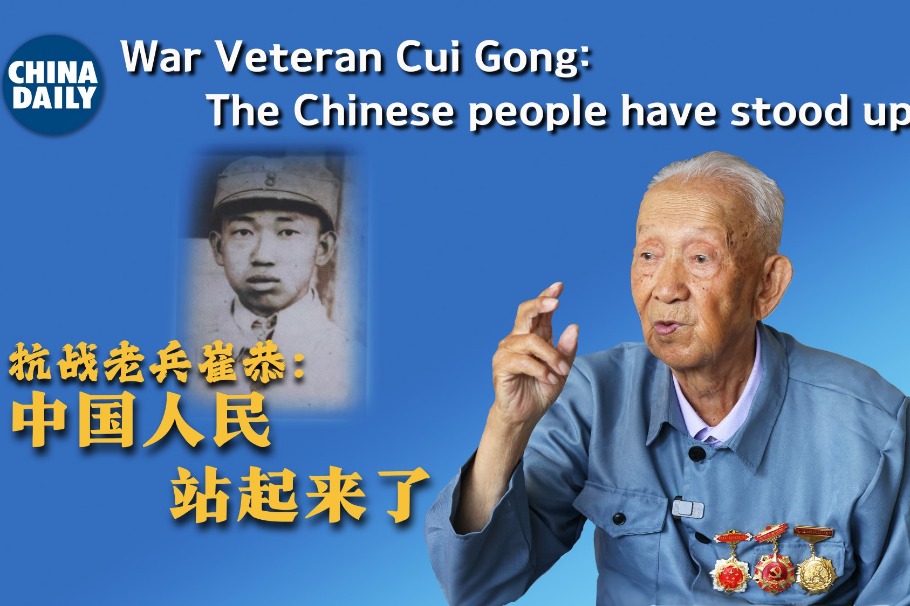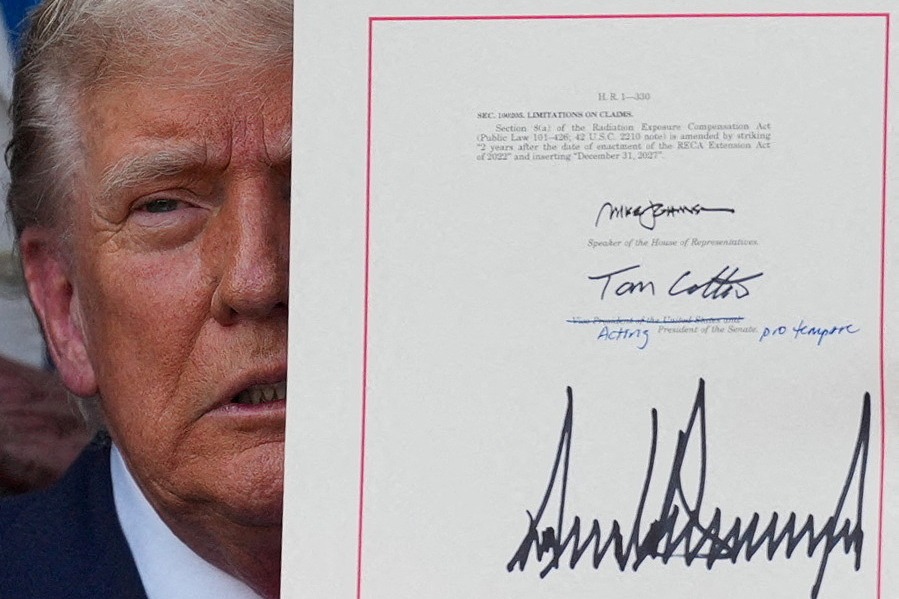Talk of new Cold War reckless, dangerous

Sting's moving 1985 song Russians summarizes the mood of the Cold War. Its refrain ("I hope the Russians love their children, too.") perfectly encapsulates the ignorance, danger and sheer craziness of the thinking of the time. During this time seemingly normal officials and strategists used the euphemism "counter-value targets" to hide from themselves that they were talking about bombing cities and killing millions of people. So, it's very disturbing to hear lots of talk about the rise of a new Cold War between the United States and China.
According to a CNBC report, two weeks ago, former deputy director of the US National Economic Council and senior trade negotiator Clete Willems said: "The reality is that tensions between the United States and China are rising considerably at the moment. I know people get uncomfortable with the terminology, but I do think we have to be honest and call this what it is and this is the start of a new Cold War and if we're not careful, things could get much, much worse."
And, Robert Kaplan, a well-known hawkish strategist and journalist, wrote an oft-cited article in Foreign Policy magazine last year titled A New Cold War Has Begun.
To be fair, Willem's position was not very high, certainly not at the policymaking level, and Kaplan is not in the government. But there is an abundance of discussion in both academic and policy circles in the US that treats China as an adversary, almost as an enemy.
The Pentagon's annual Cold War publication Soviet Military Power was simply transformed into the current China Military Power. Some people always need an enemy. The US has been at war for almost my whole life-it's time for this nonsense to stop.
The recent frequent rhetoric about a new Cold War is incredibly dangerous. Most immediately, it endangers economic prosperity. Even more dangerously, it creates the possibility that an incredibly destructive conflict might arise between the two countries.
Extreme damage would be done to both economies, and to the worldwide economy, if US and Chinese economies really become separated and hostile. The very complex and productive supply chain networks built up over the last 20 years in technology, industrial production, auto parts and so forth would be disrupted. No one knows the costs of trying to rebuild them.
Financial flows would also be disrupted. The US government depends on international purchases of treasury bonds to finance its annual deficits. No one knows exactly how much US inflation would rise, but there would clearly be a serious impact. Any lack of access to consumer markets would damage companies in both countries.
A 2017 report by the Peterson Institute for International Economics in Washington and the China Finance 40 Forum in Beijing concluded: "If a China-US trade war breaks out, not only would both economies lose, but also it would affect the global economy, with severe financial and demand repercussions on the two countries."
Over the last 20 years, the US and Chinese markets have become highly integrated, probably more so than the two very distant countries have ever been. Naturally, we can expect to see some return to the "gravity" model of trade, which argues that countries trade mostly with their near neighbors.
Using infrastructure built as part of the Belt and Road Initiative, we can expect to see China redirect some of its trade toward nearby Eurasia and Africa. Similarly, the US will probably concentrate more on North America.
Also, we can probably expect to see some correction of US banking and regulatory policies, which played a predominant role in devastating the US industrial base. The problems come when US rhetoric blames China for economic problems that are caused by bad US domestic policies.
US and China have more interests-economic and strategic-in common than in opposition. They both need to find the best way to recover from the COVID-19 pandemic. They both need economic development and poverty reduction. And both want stability and peace in Asia.
We can hope the huge amount of personal and economic contacts between China and the US should prevent the kind of ignorance addressed in Sting's song. The US and China have had strong economic, cultural and personal ties. During the Cold War, the US and the Soviet Union had almost no cultural, economic or personal contacts.
I do fear that the knowledge is mostly one way. The Chinese people know a lot more about the US than the other way around. It is very tiring to hear so-called China "experts" on US television who have no idea how to pronounce the names of China's senior leaders.
You might hope that extensive economic contacts between the US and China preclude the possibility of conflict. Yet, we need to learn from history. A 1909 famous book titled The Great Illusion by Norman Angell, a British Nobel Peace Prize winner, argued that the economic costs of a war in Europe would be so great that no one would ever start one.
British and German cultures in the early 20th century were very alike, with lots of economic and family ties, but the two countries still managed to start a disastrous war.
I grew up during the Cold War. Living in Florida as a child, I remember days of fighter jets flying toward Cuba during the Cuban missile crisis of 1962, which could easily have led to a thermonuclear war. We are lucky that the Cold War ended without catastrophe. The world should not have to live through that again.
Many Chinese people know directly the humanity of Americans and all other people. I would like to take the chance to show the United States the smiling loving families in Beijing's many beautiful parks, just to be sure that everyone understands the threat from nasty rhetoric that could lead to another Cold War, or even worse.

Today's Top News
- Israel's Gaza takeover plan widely condemned
- S. Korea visa waiver spurs surge in travel interest
- Top cities signal easing to support property market
- Ties bolster heritage protection
- Gaza 'takeover' will ignite another horrific chapter for the Middle East: China Daily editorial
- STAR shines for innovative companies






























